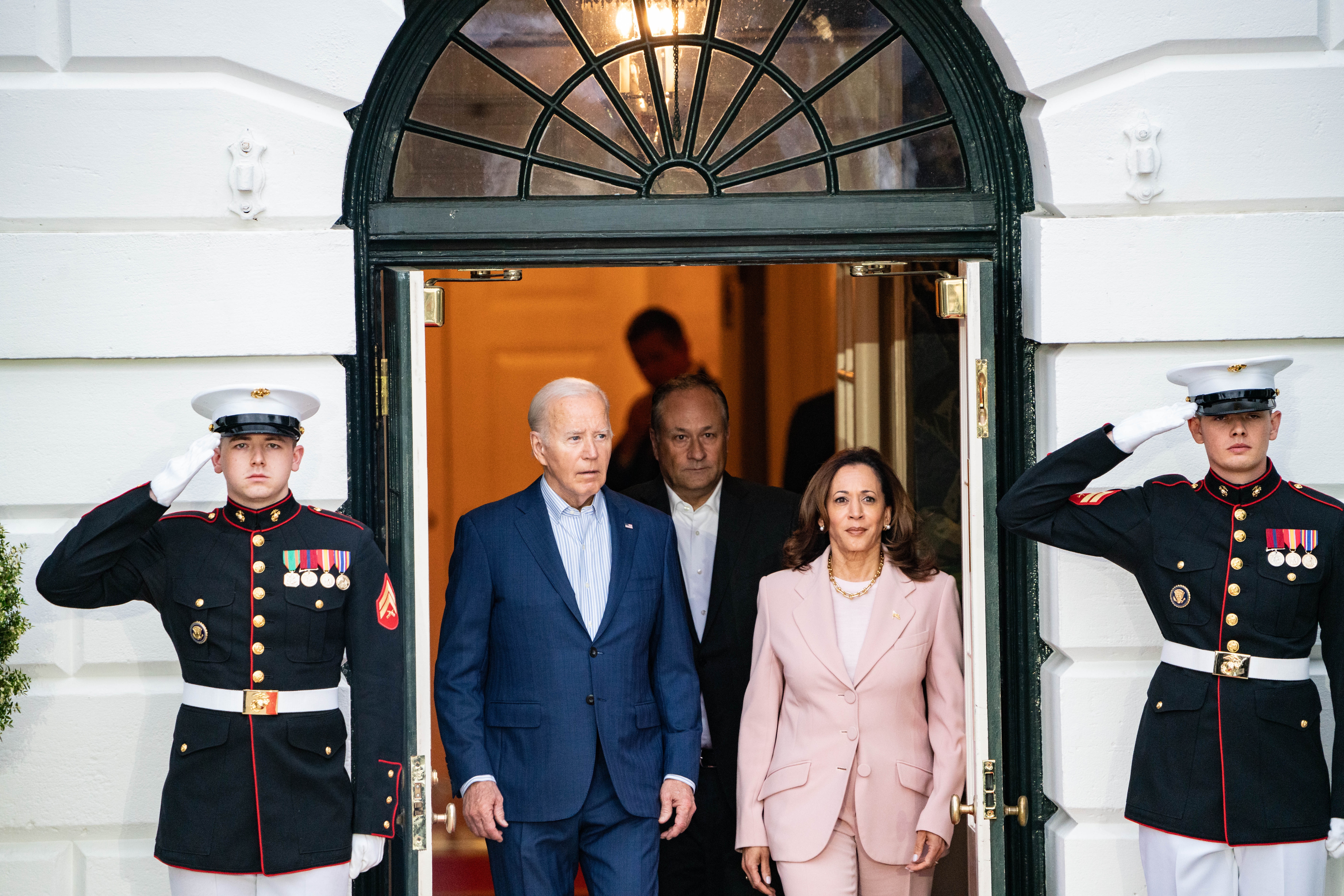A recent online meeting between members of the Democratic Party and crypto company executives drew attention to just how many firms and individuals in the crypto space have suffered from being denied banking services over the years.
On Thursday, Democratic Congressman Ro Khanna of California hosted a Zoom meeting aimed at smoothing the often antagonistic relations between the Biden administration and the crypto industry, and winning support for Vice President Kamala Harris’ presidential bid.
Read more: Kamala Harris’s VP Pick Boosts the Price of the KAMA Memecoin
Among the roughly 20 attendees were Deputy Treasury Secretary Wally Adeyemo, Deputy Director of the National Economic Council Lael Brainard and Deputy White House Chief of Staff Bruce Reed, as well as a senior adviser to Harris, according to a Fox Business report.
On the crypto side, attendees included billionaire entrepreneur and crypto proponent Mark Cuban, SkyBridge Capital founder Anthony Scaramucci, venture capitalist and Democratic donor Ron Conway, and executives from Ripple, Coinbase, Kraken, and Uniswap.
Read More: SEC Says Coinbase Seeks Entirely Irrelevant Material From Regulator
Raised Hands
When a crypto executive requested a show of hands from those whose companies had been denied banking services due to White House policies, almost every crypto representative raised their hand, according to Fox Business
The exclusion of crypto firms and individual investors from traditional banking services is a longstanding grievance held by those in the sector.
In response to tweets about the subject following the Zoom call, Custodia Bank CEO Caitlin Long, Uniswap founder Hayden Adams, Bitcoin Magazine CEO David Bailey, crypto influencer @BoredElonMusk, Gemini founders Cameron and Tyler Winklevoss were among those who wrote on X about how they or their companies had also been debanked.
“In addition to having our first bank account yoinked, the state of California also denamed us,” David Hoffman, the co-founder of Bankless, said on X, sharing a December letter from California’s Department of Financial Protection and Innovation telling the company that it was illegal for them to use the word “bank” in their name.
Katherin Minarik, the chief legal officer at Uniswap Labs, also shared her personal debanking story on X.
“The added irony is that this is why we need crypto! I’ve been debanked. In 2021, my bank of ten years froze my life savings for no discernible reason. And wouldn’t tell me when or if I could have it back,” Minarik wrote. “Big banks do not serve everyone. They can cut off your services any time for pretty much any reason. They can freeze your funds even when you’ve done nothing wrong.”
“Our financial system can and should be better than that. Nearly 20 million in this country are underbanked. Crypto can solve that. This is why I don’t understand the hate the entire industry gets. It’s so shortsighted,” Minarik added.
Some, including Bitcoin Magazine’s Bailey and Venice.ai founder Erik Voorhees, even noted that they have been denied banking services multiple times. Bailey said he’d been debanked three times over the course of 11 years, while Voorhees indicated that he and his companies had also repeatedly been denied services.
“I’d bet that over 80% of businesses and individuals in crypto have had at least one financial account closed — usually without any notice or explanation from the provider,” argued Wayne Vaughan, CEO of software development firm Tierion, on X.
Enforcement Action Against Customers Bank
The online meeting between the Democratic Party and crypto executives occurred just a few days after the Board of Governors of the U.S. Federal Reserve System brought an enforcement action against Customers Bank, which is known for providing banking services to crypto firms, including centralized exchange Kraken and stablecoin issuer Paxos.
According to the written agreement between the Fed and Customers Bank signed on Aug. 5, the Fed ordered the crypto-friendly bank to implement measures within 60 days to comply with the Bank Secrecy Act and federal anti-money laundering requirements within 60 days. against “identified significant deficiencies related to the Bank’s risk management practices and compliance with the applicable laws, rules and regulations relating to anti-money laundering.”
The charged Zoom call also comes as Vice President Harris has gained an equal probability of becoming the next U.S. president as Republican nominee Donald Trump, per predictions market platform Polymarket.
Vice President Harris has seen her odds increase from 6% on July 16, before President Biden dropped out of the race and endorsed her as a candidate, to 49% currently. Meanwhile, Trump’s odds of winning on Polymarket have plunged 23 percentage points to 49% over the same time period.



